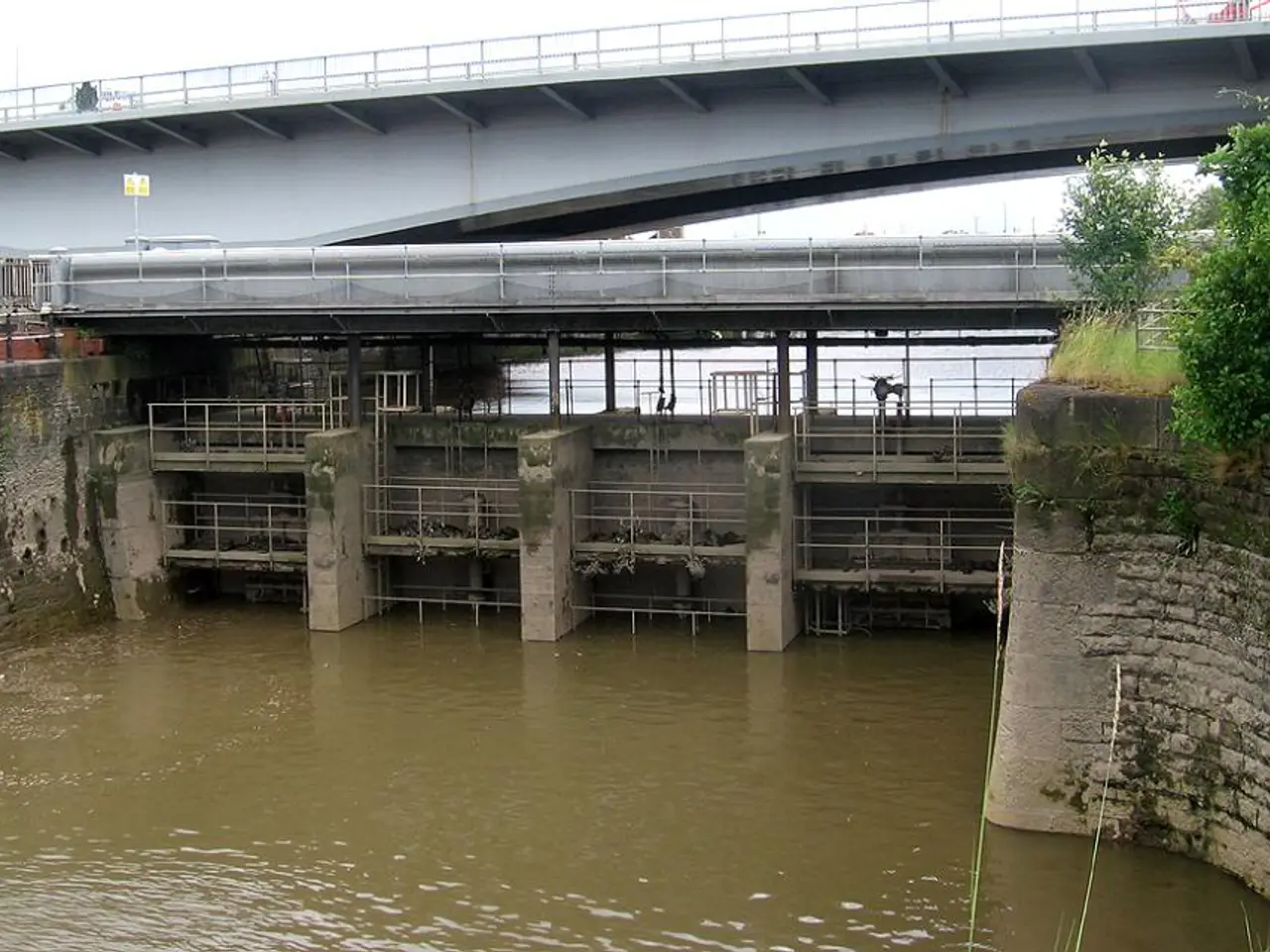Krischer views flood protection as an essential responsibility for future generations. - Next-Generation Responsibility: Krischer Emphasizes Flood Protection
In the aftermath of the devastating floods that hit NRW in July 2021, the state has embarked on a comprehensive mission to enhance its flood protection measures. By the end of 2025, the state aims to operate 122 of its own gauges, an increase from the current 84, with more gauges planned for smaller rivers [1].
A river basin-oriented approach is being taken by the NRW Ministry, emphasising collaboration with municipalities and water associations to improve forecasts and early warnings for floods. The state has established a flood protection control center to collect and disseminate relevant data and information during flood events [2].
However, the opposition has criticised the slow pace of building measurement stations and approving flood protection measures in NRW. They claim that despite many planned measurement stations, few are actually built [3]. The opposition also raises concerns about the state of half of NRW's dikes, which still require renovation [4].
In response, Environment Minister Oliver Krischer considers flood protection to be a generational task. The expansion of the measurement network is aimed at improving forecasts and early warnings for floods, with the goal of better protecting the population from future disasters [5].
The ministry aims to collaborate more closely with municipalities and water associations to address these challenges. Hundreds of flood protection measures have been implemented, including dike renovations, construction of new retention basins, and expansion of the measurement network [6].
The report from the parliamentary inquiry committee on the flood recently published its final report, urging more speed in dealing with future natural disasters. The report highlights the need for increased speed in addressing flood risks, particularly in light of the changing climate [7].
Initiatives like the PrioReMap method for rapid area prioritization during floods demonstrate an ongoing commitment to innovation in flood management. This method uses GIS-informed Bayesian networks to support decision-making in disaster scenarios [8].
The Emschergenossenschaft and Lippeverband are involved in significant infrastructure projects in NRW, focusing on river restoration and improvements in sewer and stormwater management systems, which are essential for reducing flood risks in urban and rural areas [9].
However, the challenges of climate change require adaptive measures to mitigate flood impacts. This includes integrating climate resilience into urban planning and infrastructure development [10]. The municipal opening clause in the Building Code (BauGB) allows local municipalities to designate wind energy areas independently, which can indirectly influence spatial planning and flood risk management by altering land use patterns [11].
Despite the progress made, Minister Krischer acknowledges that the goal of the flood protection measures is still not fully achieved. The ongoing efforts reflect a comprehensive approach to managing flood risks in NRW, integrating both environmental and infrastructure-related strategies.
- For improved environmental protection and climate change mitigation, the state's policy and legislation are focusing on enhancing the operation of flood protection control centers, enlarging the measurement network, and collaborating with municipalities and water associations.
- As science continues to underscore the importance of environmental protection and health, the NRW Ministry has emphasized the importance of flood protection as a generational task, implementing numerous flood protection measures such as dike renovations, retention basin construction, andMeasurement network expansion.
- In the midst of concerns about the state of half of NRW's dikes and the slow pace of building measurement stations, the Environment Minister, Oliver Krischer, advocates for swift action in addressing flood risks and integrating climate resilience into urban planning and infrastructure development, recognizing the urgent need for such adaptive measures in light of the changing environment.








